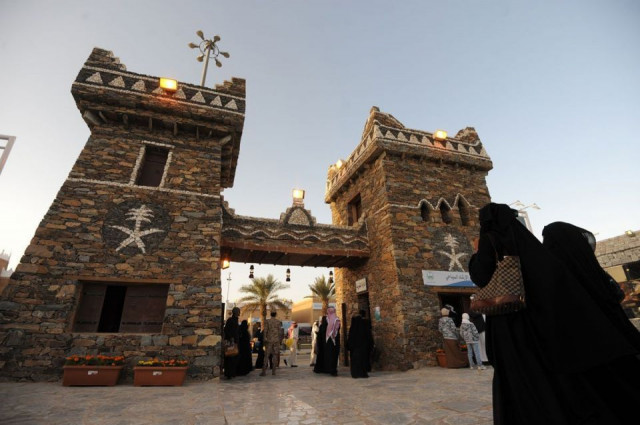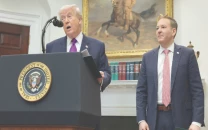Saudi Arabia aims to issue tourist visas next year
Mohammed bin Salman is seeking to develop new industries to wean his country off its dependency on oil exports

Saudis attend the Janadriyah festival of Heritage and Culture held in the Saudi village of Al-Thamama, 50 kilometres north of the capital Riyadh. PHOTO: FILE
At present, foreigners travelling to Saudi Arabia are largely restricted to resident workers and their dependents, business travellers, and Muslim pilgrims who are given special visas to travel to holy sites.
"The targets are people who want to come and literally experience this country, and really the grandness of this country," Prince Sultan bin Salman bin Abdulaziz, head of the Saudi Commission for Tourism and Natural Heritage, said in an interview broadcast late on Wednesday.
Asked about plans for the visas, he replied: "Hopefully in 2018," adding that the government would use online technology to make applying for visas easy.
Saudi Arabia's 32-year-old heir to the throne, Crown Prince Mohammed bin Salman, is seeking to develop new industries to wean his country off its dependency on oil exports. He has also taken some steps to loosen its ultra-strict social restrictions, scaling back the role of religious morality police and announcing plans to allowing women to drive next year.
Plans to admit significant numbers of tourists from abroad have been discussed for years, only to be blocked by conservative opinion and bureaucracy; the commission announced such a plan as long ago as 2006, but it did not go ahead.
This time, the government appears determined to push through the change, partly because of financial pressures. It hopes to earn billions of dollars to cover a state budget deficit caused by low oil prices. Economic reforms aim to lift total tourism spending in the country - by local citizens as well as foreigners - to $46.6 billion in 2020 from $27.9 billion in 2015.
Saudi woman attempts ‘street surfing’ in Jeddah floodwater
Prince Sultan said his commission was focusing mainly on increasing numbers of local tourists.
The commission has estimated Saudis spend more than $20 billion annually on tourism abroad, and persuading more of them to holiday inside the country would reduce that drain on the economy.
But Prince Sultan told CNN that his commission was also working to prepare tourist spots for foreigners.
The government announced plans in August to develop resorts on about 50 islands off the Red Sea coast, with the first phase of the project to be completed in 2022. The kingdom also intends to offer visits to historic sites such as Mada'in Saleh, a 2,000-year-old Nabatean city carved into the rocks of the northern desert.
Heir to the throne Prince Mohammed would be the first ruler from a new generation since 1953, after six kings who were all sons of state founder Abdulaziz ibn Saud.
He has announced wide plans for social and political reforms to the kingdom, which is ruled as an absolute monarchy with a powerful clergy that adheres to Wahhabism, an ultra-austere version of Sunni Islam.

1644560129-0/download-(20)1644560129-0-208x130.webp)
















COMMENTS
Comments are moderated and generally will be posted if they are on-topic and not abusive.
For more information, please see our Comments FAQ